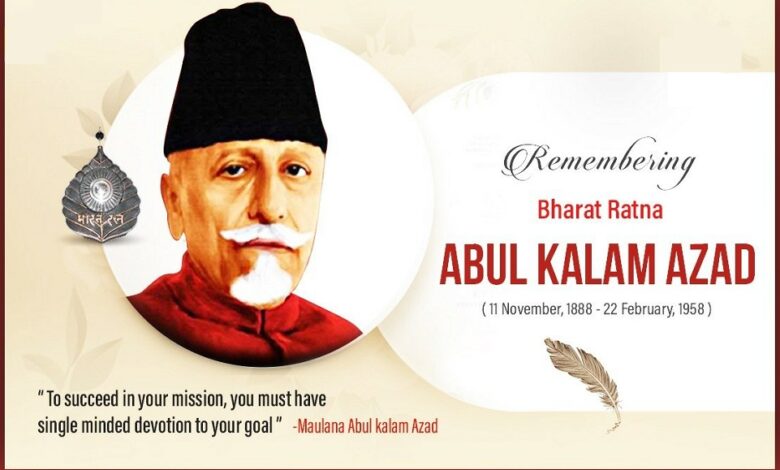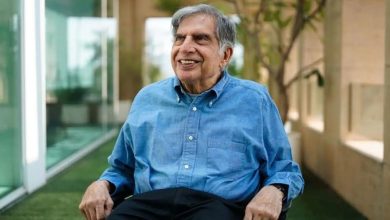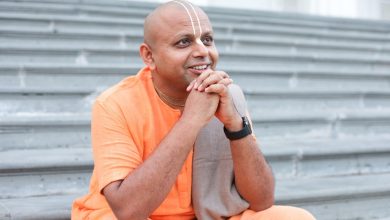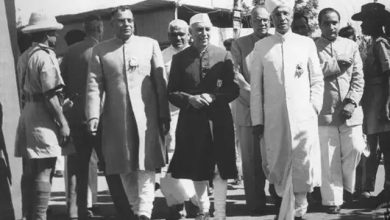National Education Day: Things to know about Abul Kalam Azad.

Every year, November 11 is celebrated as National education day, which commemorates the birth anniversary of independent India’s first education minister, Maulana Abul Kalam Azad. In 2008, the ministry of human resource development decided to celebrate Azad’s birthday as National Education Day. Several political leaders paid tributes to Maulana Abul Kalam Azad on his birth anniversary.
Educational institutions across India mark the event with seminars, essay-writing, workshops etc to highlight the importance of education.
However, Maulana abul Kalam Azad had not only been India’s first education minister but also played an important role in the country’s freedom struggle.
Here are 10 things to know about him
- Abul Kalam Azad was one of the leading organisers of the Dharasana Satyagraha- a protest against the British salt tax in the year 1930.
- In 1920, Azad, along with two others, became one of the founding members of the Jamia Millia Islamia University, which was originally established in Uttar Pradesh’s Aligarh. Fourteen years later, Azad helped in shifting the university campus from Aligarh to New Delhi.
- He was a member of Congress and in 1923, he became the youngest president of the party at the age of 35.
- Abul Kalam Azad also worked as a journalist and contributed articles to several Urdu publications. He also came up with a monthly journal Lissan-us-Sidq which was in print till 1905. In 1904, he served as the editor of Amritsar-based newspaper Vakil for around eight months. In 1912, Azad published a weekly Urdu newspaper called Al-Hilal.
- As a journalist, Azad used to publish works that criticised the British Raj and highlighted the problems faced by common people.
- Azad has been regarded as one of the prominent national political figures of his time, as he led the cause of Hindu-Muslim unity and supported secularism and socialism.
- Azad was homeschooled and self-taught and was fluent in many languages including Arabic, Bengali and Persian.
- Under his tenure as the education minister, the ministry established the first Indian Institute of Technology (IIT) in 1951 and the University Grants Commission (UGC) in 1953.
- Azad was the leader of the Khilafat movement from 1919–1924, during which he met Mahatma Gandhi.
- In 1989, the ministry of minority affairs established the Maulana Azad Education Foundation, to promote education among the educationally backward classes of the society.
“Tributes to Maulana Abul Kalam Azad on his Jayanti. A pathbreaking thinker and intellectual, his role in the freedom struggle is inspiring. He was passionate about the education sector and worked to further brotherhood in society,” Prime Minister Narendra Modi tweeted.
Sources: Hindustan Times.





